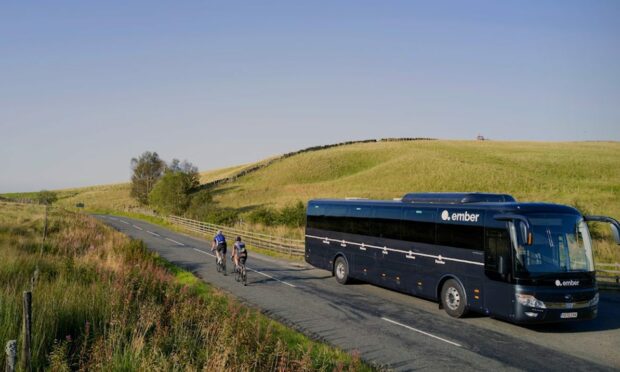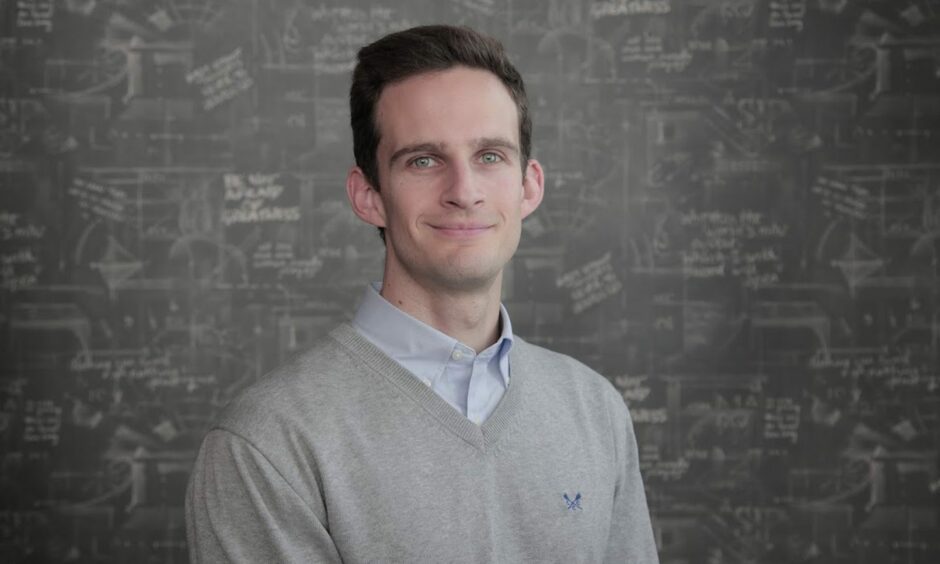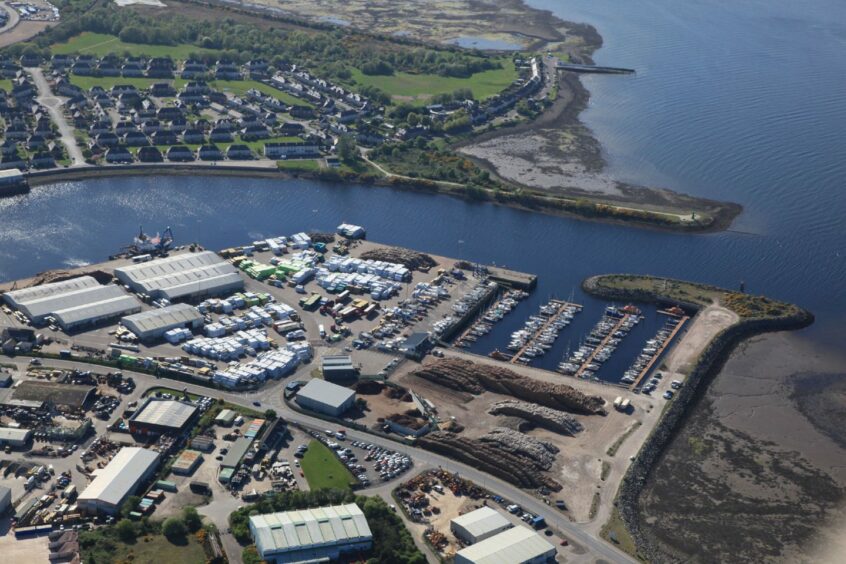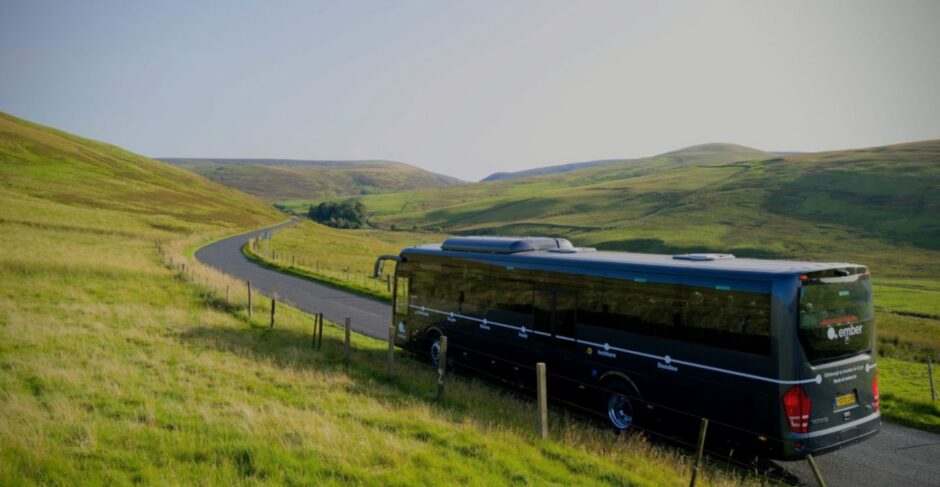Electric bus operator Ember has unveiled plans to create a “hub” in Inverness for new services to and from the Highland capital.
The company’s first move is an application to Highland Council to build a charging facility at Port of Inverness, and it is already looking to recruit for 25 jobs in the city.
The port has confirmed the planning application is in its name, as the landowner.
If councillors approve the move, Edinburgh-based Ember would be looking to base eight electric buses in Inverness for intercity routes across Scotland from next year.
The firm currently operates services from Dundee to both Edinburgh and Glasgow, and is also mulling Aberdeen as a possible location for future routes.
Ember co-founder Keith Bradbury told The Press and Journal: “We started with Dundee-Edinburgh and part of our expansion plans include building a network across Scotland.
“When we looked at ideal places for charging hubs Inverness was one of the obvious places. We need to build charging facilities before we launch routes and there is obviously a space requirement.”
An acre of space at Port of Inverness
Port of Inverness would offer around an acre of space for the required pantograph chargers, which hook onto a bus roof rail, while there is also a need for a sub-station.
The charging hub would be a mini depot, with facilities for drivers and other members of Ember’s team. The location for a passenger pick-up point has yet to be determined.
“We will have a long-term lease (at Port of Inverness),” Mr Bradbury said, adding: “In our experience being able to work with a landlord who understands (our needs) is incredibly important. Port of Inverness has really understood and worked with us.”
Given driver recruitment difficulties experienced across the north and north-east, Ember intends to tackle the issue head on by offering above market-rate wages to tempt people to come on board.
Mr Bradbury added: “The challenge is to make sure we are offering an attractive proposition to drivers. Everywhere there has been a driver shortage we have just been hiring more people and have had a huge influx of applications.
Cost-of-living crisis driving up wages
“We are very much aware this cost-of-living crisis is a real thing and we did bump up salaries.
“It is also quite attractive to drivers in terms of being able to drive new, electric vehicles and do intercity work.”
Ember has raised finance from capital markets and has “access to funding” through various schemes for local bus operators.
Mr Bradbury said: “The combination of those grants and private equity financing has meant we are able to scale up the business.”
Ember’s Inverness-based vehicles would feature a coach chassis and be fitted out to a high specification for a typical two-hour trip.
The route for which Ember has the most data is Dundee-Edinburgh, with around half of passengers travelling end-to-end.
Other “hubs” Ember is considering include Aberdeen and Glasgow, with the bus operator promoting green credentials as it goes head-to-head with existing Citylink, Megabus and train links.
“We are looking far beyond bus and train,” Mr Bradbury, said, adding: “How do we get people out of cars? Car journeys make up 90% – the Scottish Government target is to reduce car kilometres 20% by 2030.
“We also have a lot of bikes because we make it very easy to bring one on board.”
Ember is currently able to accommodate two bicycles per service but is looking to fit a rack capable of carrying up to six.
Real-time monitoring
Once their trip back to Inverness is complete, the buses would return to the port to recharge, a process taking between an hour and an hour-and-ahalf.
Ember insists it designs its routes to make sure “we are never in a situation of running low”, while constant real-monitoring of its fleet ensures the buses are always charged.
Plans for an Aberdeen hub are “in progress” but the company was unable to confirm any timings at this stage.




Conversation